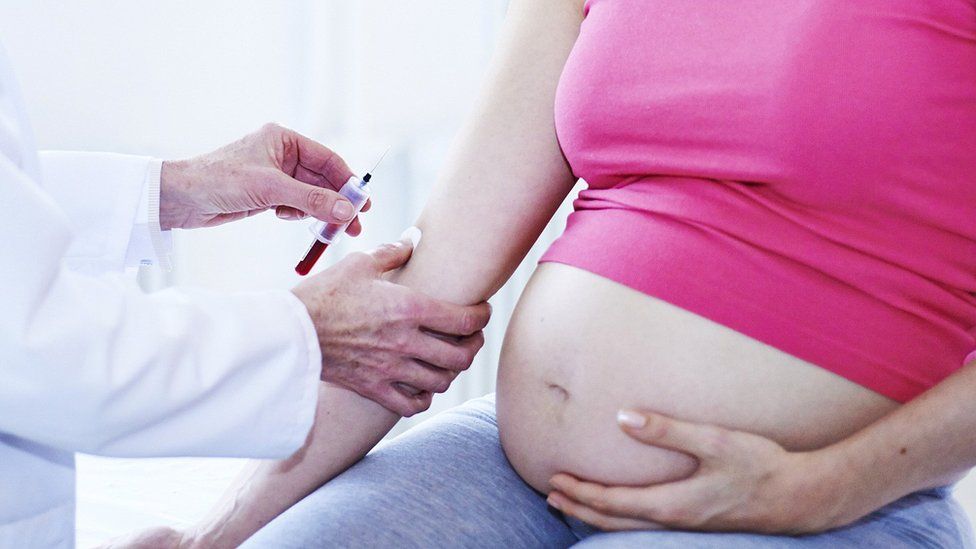Government approves new Down's syndrome test
- Published
- comments

Pregnant women in England will soon be offered a safer, more accurate new test for Down's syndrome, government ministers have confirmed.
The non-invasive prenatal test (NIPT) will be rolled out by the NHS from 2018.
It should cut the number of women who need riskier diagnostic tests in pregnancy that can cause a miscarriage.
But critics fear the new test, although optional, may lead to more women aborting babies with Down's.
Down's syndrome is a genetic condition that typically causes some level of learning disability and characteristic physical features.
The NHS already offers screening to women 11 to 14 weeks into their pregnancy.
Diagnosing Down's
At the moment, an ultrasound scan, the mother's age and other factors such as smoking are combined to assess the likelihood of a baby having Down's.
Anyone with a greater than one-in-150 chance of giving birth to a baby with the condition is offered an amniocentesis, in which a needle is used to extract a sample of amniotic fluid surrounding the foetus for testing to get a clear diagnosis.
It is a risky procedure and most of the women who are referred for amniocentesis will not have a baby with Down's. Yet one in every 100 who has the test risks having a miscarriage.
NIPT is a simple blood test that can more accurately inform women about the odds of their unborn child having Down's, or indeed other genetic disorders such as Edwards' and Patau's syndromes, before deciding whether or not to have amniocentesis.
Experts estimate NIPT could avoid more than 6,000 of these invasive procedures each year. This means that there could be a reduction in the number of miscarriages related to amniocentesis from 46 to approximately three per year.
Some charities and patient organisations have welcomed the move, but others are concerned about the possible ramifications.
People with Down's syndrome, their families and campaign groups expressed anger at not being consulted before the decision to roll out the screening.
The Nuffield Council on Bioethics is currently considering the range of ethical issues raised by the new test and will publish its findings in early 2017.
Dr Anne Mackie, from the UK National Screening Committee, said: "We will closely manage the roll-out of non-invasive prenatal testing to give us a better understanding of the impact it has on the decisions women and their partners make following their test results.
"Key to ensuring we get this right is the work we are doing with patient groups, scientists and clinicians, to help us develop balanced informative resources for the public and health professionals."
- Published15 January 2016